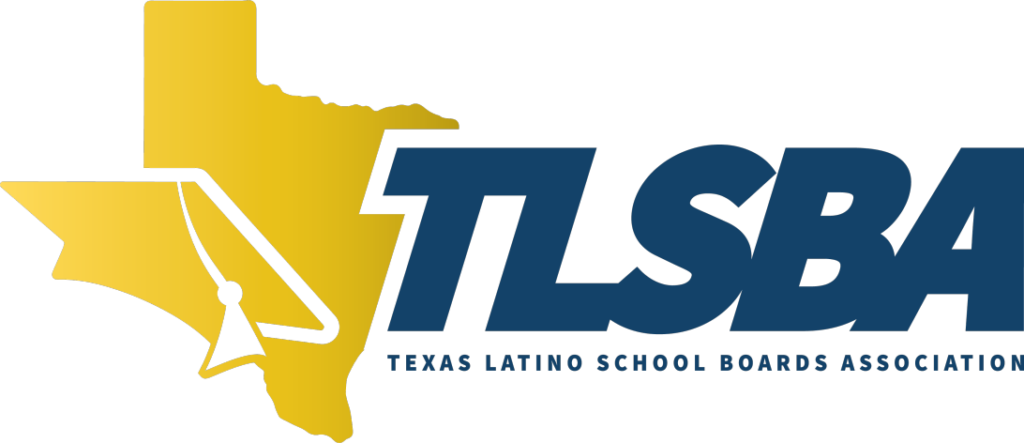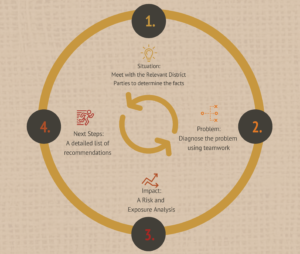
Your source for local & national Educational News!
This month's newsletter features information on ESSER Grants and navigating the funding waters during Covid-19, as well as news of our firm’s appointment to the Texas Latino School Boards Association’s Board of Advisors!
How to navigate the funding waters during COVID-19?
By: Darrick Eugene, Attorney

The Basics
We find ourselves similarly situated to where we began in March 2020. The federal
government has sent relief in the form of Elementary and Secondary School Emergency
Relief (“ESSER”) Grant Programs, which public schools are now acquainted with. The U.S.
Department of Education has defined the intent of the ESSER grants to “prevent, prepare
for or respond to the COVID-19 pandemic, including its impact on the social, emotional,
mental health, and academic needs of students”.
The Breakdown
ESSER I funding is available from March 13, 2020, to September 30, 2022, and is supplanted
through state funding. The total amount given to the states was $1.2 billion. These funds
have been expended.
ESSER II funding is available from March 13, 2020, to September 30, 2023, and is partially
supplanted through the states. The total amount given to the states was $5.5 billion.
ESSER III funding is available from March 13, 2020, to September 30, 2024, and is not supplanted by the states. In a unique turn of events, school districts that receive ESSER III funds have more discretionary use of these funds. However, 20% of all funds used are required for addressing learning loss which includes the academic, social, emotional, and mental health needs of students and staff. The total amount given to the states was $5.5 billion.
The Justification Process
Remember, it is as easy as 1, 2, 3.
- Reasonable and Necessary: Once ESSER funds are granted via the application
process, all funds must be properly justified and documented for auditing purposes. A proper justification is one where the cost is “reasonable and necessary.” In other
words, the cost incurred must be that of what a “reasonably prudent person would pay under the circumstances prevailing at the time the decision was made to incur the cost of activity that is a part of a plan.” - Aligned with ESSER Statute: ESSER Statutes I- III makes clear that the funds are granted to schools to prevent, prepare for or respond to the COVID-19 pandemic, including its impact on the social, emotional, mental health, and academic needs of its students.
- Aligned with Statutorily Allowed Use of Funds: Please see the qualifying reasons
below in the use of funds.
Program Auditing
All ESSER fund recipients can expect to be audited and while the justification process appears straightforward districts struggle with developing or maintaining the required documentation and ensuring that the expenses are part of a plan. These failures can jeopardize the audit process. Some common oversights include:
- Obtaining stakeholder/community engagement but failing to document date, place and
time - Failing to connect a use of grant funds to part of a plan
- Lack of inventory records for equipment purchased with grant funds
- Missing preliminary plan or needs assessment
Use of Funds
A full list of the allowable use of funds can be found at:
Per USDE guidance, LEAs may use ESSER I, ESSER II, and ESSER III grants generally for the following
types of uses:
Generally, an LEA may use ESSER funds for:
- Activities described in federally mandated education-based statutes as IDEA;
- Activities associated with providing staff resources necessary for their individual schools;
- Activities to address the unique needs of low-income students, students with disabilities,
students in marginalized communities; - Supports that address structural needs such as educational technology, mental health
services, school facility operations related to COVID-19; and - Other activities that are necessary to maintain the operation and continuity of services in
the LEA and continue to employ existing staff.
For more details concerning types of uses, contact your attorney or grant administrator.
Program Auditing
ESSER Grants can be tricky. Remember that all grantees should expect federal monitoring of funds. Additionally, TEA will conduct fiscal reviews and compliance validations of all available ESSER grants each year of the grants period of availability. If you have any questions about the differences between the ESSER grants, please click the button below.
Eugene & Associates Monthly Spotlight

Eugene & Associates is happy to announce the firm’s appointment to the Texas Latino School Boards Association’s Board of Advisors.
For questions or more info, contact us!
info@deugenelaw.com

WHY CHOOSE US?
Eugene & Associates, PC, is a boutique law firm specializing in education law and regulation, public finance, renewable energy and nonprofits. At Eugene & Associates, PC, we strive to bring added value to our client partners through sound legal advice, responsive business practices and a personal touch to achieve successful business outcomes.




